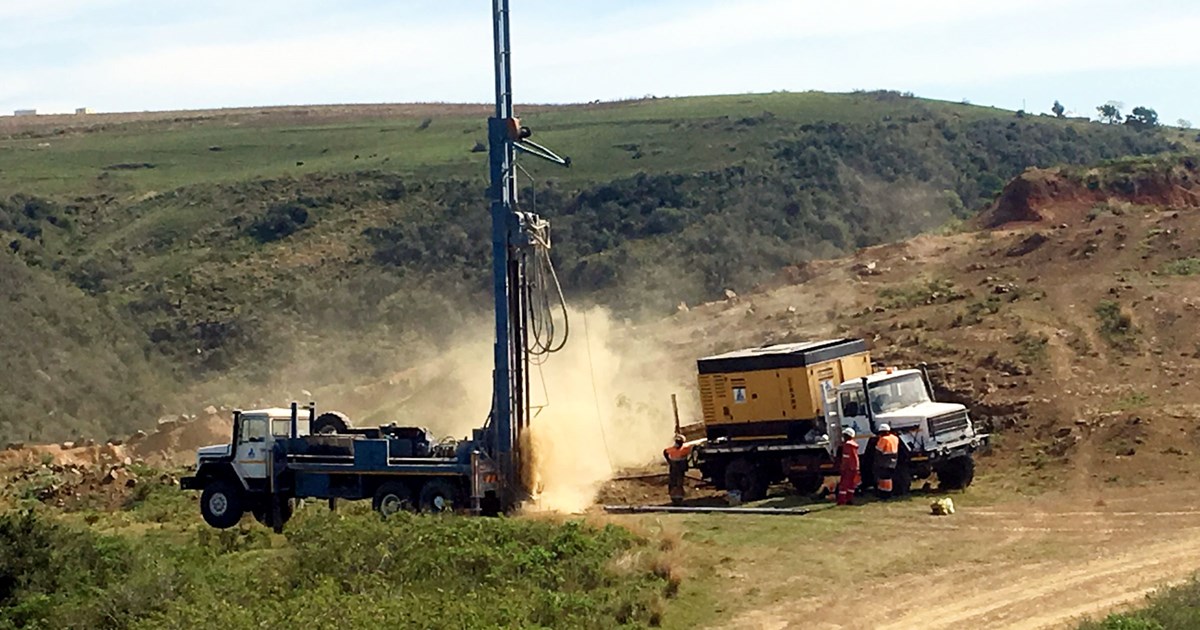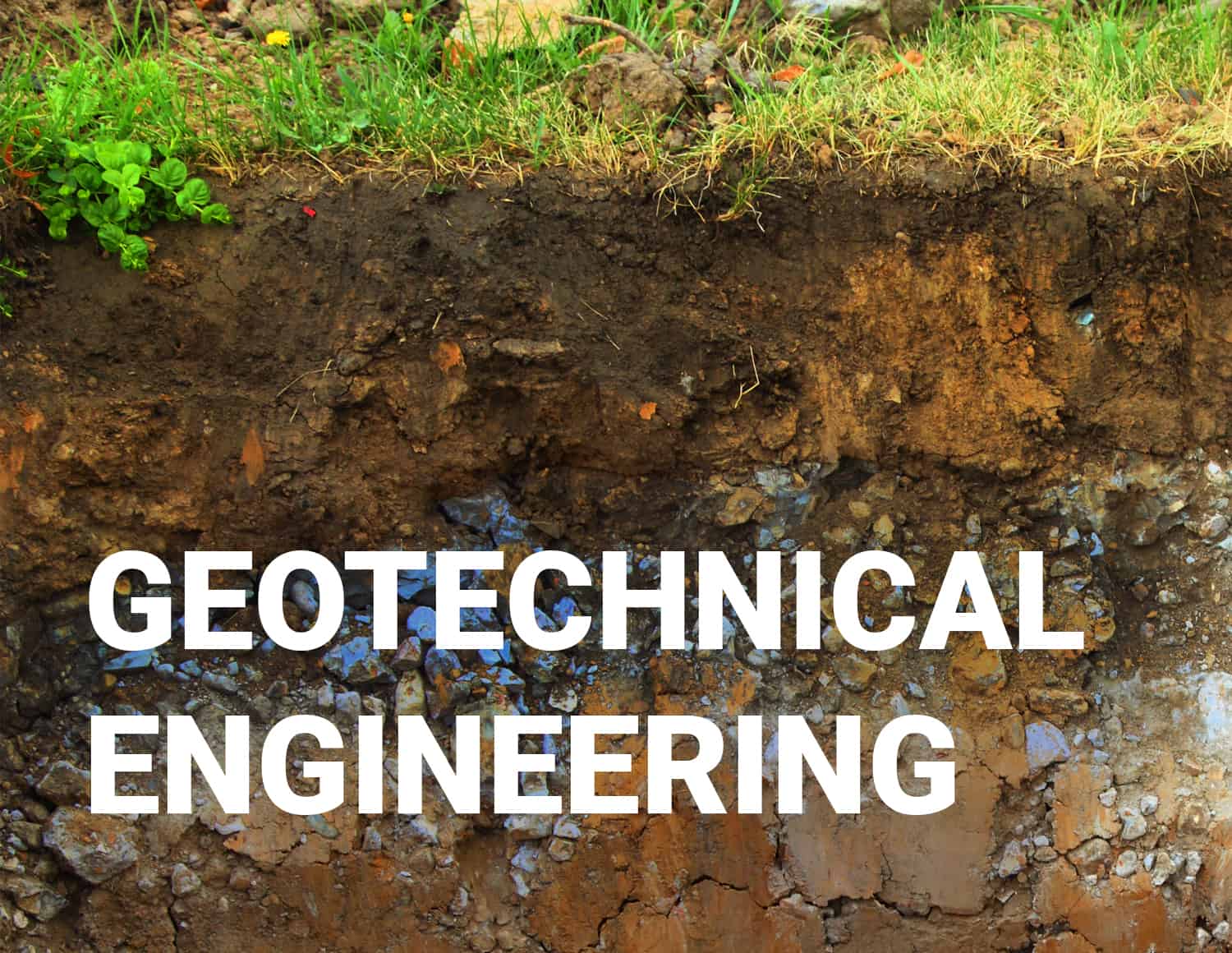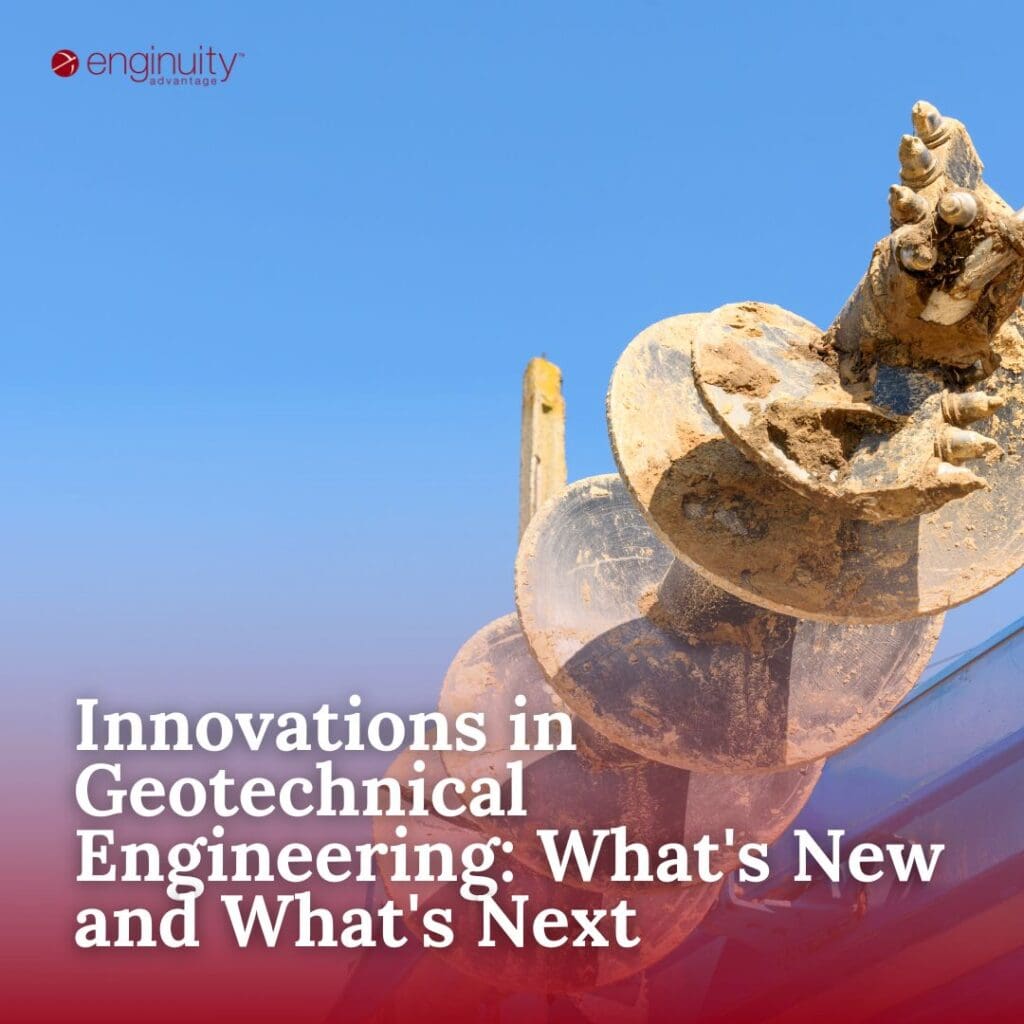Leading Factors to Employ a Geotechnical Specialist for Your Construction Jobs
Leading Factors to Employ a Geotechnical Specialist for Your Construction Jobs
Blog Article
The Value of Geotechnical Design in Dealing With Environmental Obstacles and Enhancing Building Safety
Geotechnical design offers as a foundation in the crossway of environmental stewardship and building safety and security, providing vital understandings right into the actions of soil and rock under numerous conditions. By implementing strategic site examinations and tailored reduction measures, geotechnical engineers play a crucial role in safeguarding both human lives and eco-friendly honesty.

Duty of Geotechnical Engineering
Geotechnical design plays an essential duty in the design and construction of facilities by attending to the habits of soil and rock materials under numerous problems. This area of engineering is crucial for understanding the communication between frameworks and the ground, which includes establishing the load-bearing capacity of soil, evaluating security, and predicting prospective negotiation or failing.
Geotechnical designers are in charge of performing website investigations, which involve tasting and screening soil and rock to gather data on their chemical and physical residential or commercial properties. This information is vital for designing structures, keeping walls, and various other earth-retaining structures that make sure safety and durability. In addition, geotechnical engineering educates the option of ideal construction techniques and products, therefore minimizing risks associated with soil habits.
Moreover, the assimilation of geotechnical design principles right into metropolitan planning and environmental administration is vital for dealing with obstacles such as ground contamination and groundwater administration. By understanding geotechnical factors, designers can develop sustainable options that improve the strength of infrastructure against natural dangers, while likewise advertising ecological stewardship. Eventually, the role of geotechnical engineering is crucial for accomplishing safe, sturdy, and environmentally aware construction practices.
Dirt Erosion Reduction
Soil disintegration postures a considerable hazard to both environmental security and infrastructure integrity, affecting around 24 billion lots of fertile soil shed annually worldwide. This phenomenon is intensified by aspects such as logging, urbanization, and inadequate agricultural practices. Geotechnical design plays a critical function in creating effective dirt erosion reduction methods that safeguard both the atmosphere and construction projects.
One approach involves the application of erosion control techniques such as plant life planting, which maintains soil through root systems. In addition, the building and construction of keeping balconies and wall surfaces can properly lower surface area drainage and protect vulnerable areas from disintegration. Proper drain style is likewise vital; it lessens water buildup and guides excess overflow away from crucial frameworks.
Furthermore, geotechnical designers employ dirt stablizing strategies, such as the application of geotextiles and naturally degradable mats, to boost soil communication and prevent degradation - all about geotechnical engineering. Regular surveillance and assessment of erosion-prone sites enable prompt interventions, guaranteeing lasting sustainability. By incorporating these approaches, geotechnical engineering not only mitigates the effects of soil erosion however additionally adds to the resilience of facilities against ecological obstacles, inevitably fostering a more secure and a lot more sustainable constructed environment
Groundwater Defense Methods
Groundwater functions as an important source for alcohol consumption water, farming, and industrial processes, making its protection crucial for ecological sustainability and public health. Efficient groundwater protection strategies are critical in alleviating contamination dangers and making sure the durability of this resource.

Regular monitoring of groundwater top quality is likewise necessary, allowing early detection of contamination sources and helping with prompt removal efforts. Utilizing sophisticated innovations, such as geophysical surveys and remote picking up, help in identifying prospective hazards to groundwater books.
Additionally, public education and learning and stakeholder interaction are vital, cultivating community assistance for groundwater security efforts. about geotechnical engineering. By integrating regulative measures, technological improvements, and neighborhood involvement, we can produce an extensive structure that safeguards groundwater resources while promoting sustainable growth and building practices
Landslide Threat Management
Landslides pose significant hazards to both human safety and facilities, making efficient threat management strategies crucial. Geotechnical engineering plays an important function in identifying, examining, and mitigating landslide risks. An extensive understanding of incline security, dirt technicians, and hydrology is crucial for establishing effective threat monitoring plans.
The initial step in landslide threat management involves extensive site investigations, that include geological mapping and soil testing. These examinations help engineers assess the capacity for landslides by recognizing important elements such as incline angles, dirt composition, and water content. Using innovative modern technologies such as remote picking up and geophysical studies can improve the accuracy of these evaluations.
As soon as threats are identified, suitable reduction measures can be applied. These might consist of engineering services such as preserving walls, drain systems, and slope stablizing techniques. In addition, keeping track of systems need to be developed to find indicators of ground movement and modifications in water degrees, enabling aggressive treatments.

Enhancing Building Safety
Building websites commonly offer a myriad of threats that can jeopardize employee security and task stability. Geotechnical engineering plays an essential role in boosting construction security by giving important insights into subsurface problems. Via detailed dirt and rock evaluation, geotechnical designers can identify possible threats, such as soil instability, groundwater concerns, and seismic vulnerabilities, which might jeopardize the safety of building and construction tasks.
Applying geotechnical solutions, such as proper structure layout and the usage of retaining frameworks, alleviates these threats dramatically. These services not just make sure the stability of the frameworks being developed yet additionally produce a much safer working environment for building employees. Additionally, extensive surveillance and evaluation of site conditions throughout the building process are vital. Using innovative modern technologies like ground-penetrating radar and inclinometer systems allows real-time data collection, enabling timely treatments when hazards are discovered.
In addition, cultivating a society of security via training and adherence to developed security methods better boosts building and construction site security. By integrating geotechnical experience into the preparation and execution stages, construction projects can attain greater safety and security criteria, eventually securing employees and making sure successful job conclusion.
Final Thought
In conclusion, geotechnical engineering serves as an important discipline in promoting and dealing with environmental challenges construction safety and security. With effective soil view website erosion mitigation, groundwater protection techniques, and landslide risk monitoring, geotechnical engineers add to the advancement of resilient infrastructure.
Geotechnical engineering company website offers as a foundation in the crossway of ecological stewardship and building and construction safety and security, supplying crucial understandings into the habits of dirt and rock under different problems. Geotechnical design informs the option of suitable construction approaches and products, thus lessening threats connected with soil actions.
Geotechnical design plays a crucial function in developing reliable dirt disintegration reduction approaches that secure both the atmosphere and construction tasks.
Additionally, geotechnical engineers employ soil stabilization techniques, such as the application of geotextiles and naturally degradable mats, to improve dirt cohesion and avoid destruction. Through extensive soil and rock evaluation, geotechnical designers can determine potential threats, such as dirt instability, groundwater concerns, and seismic vulnerabilities, which may jeopardize the safety of building tasks.
Report this page